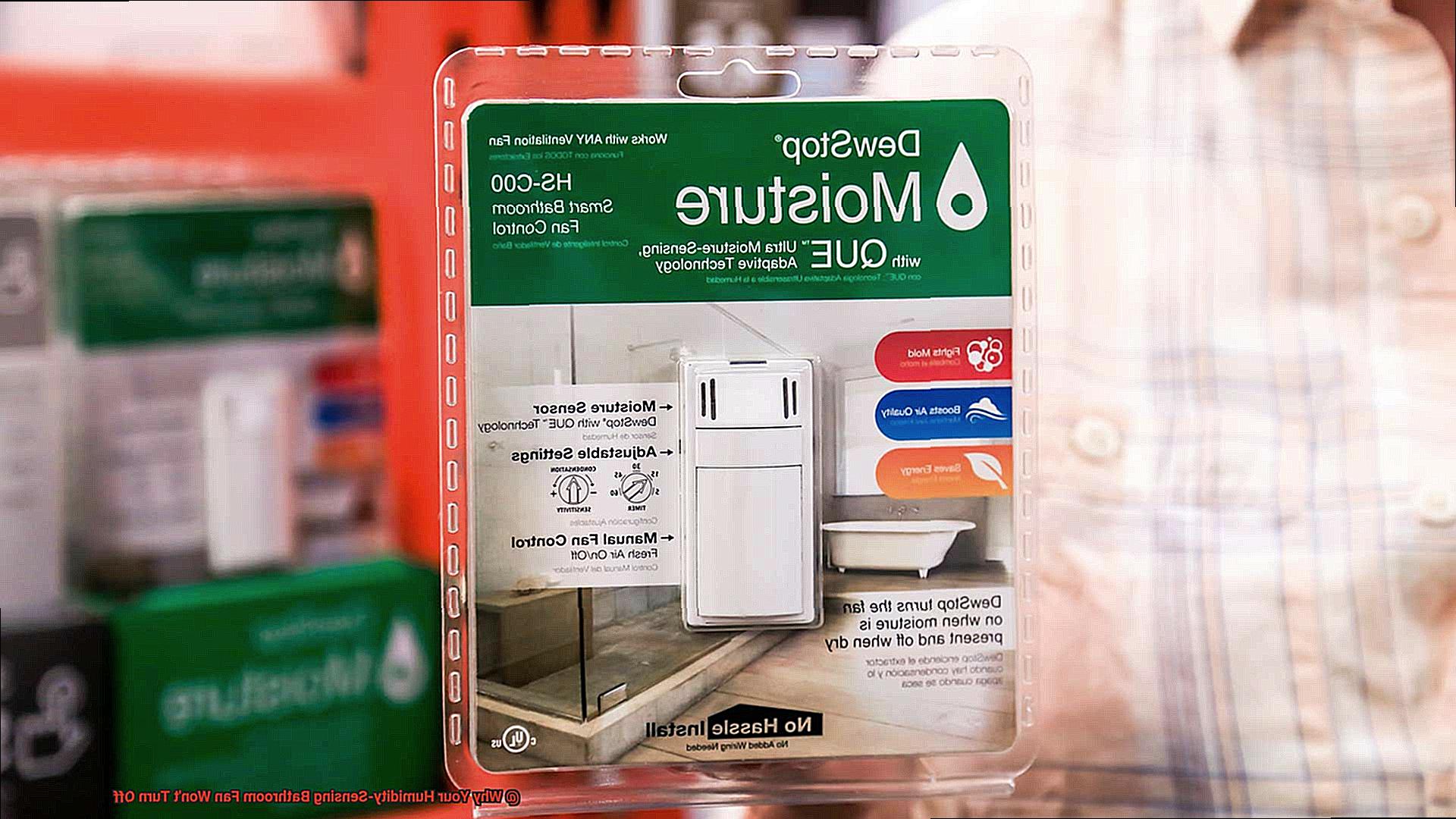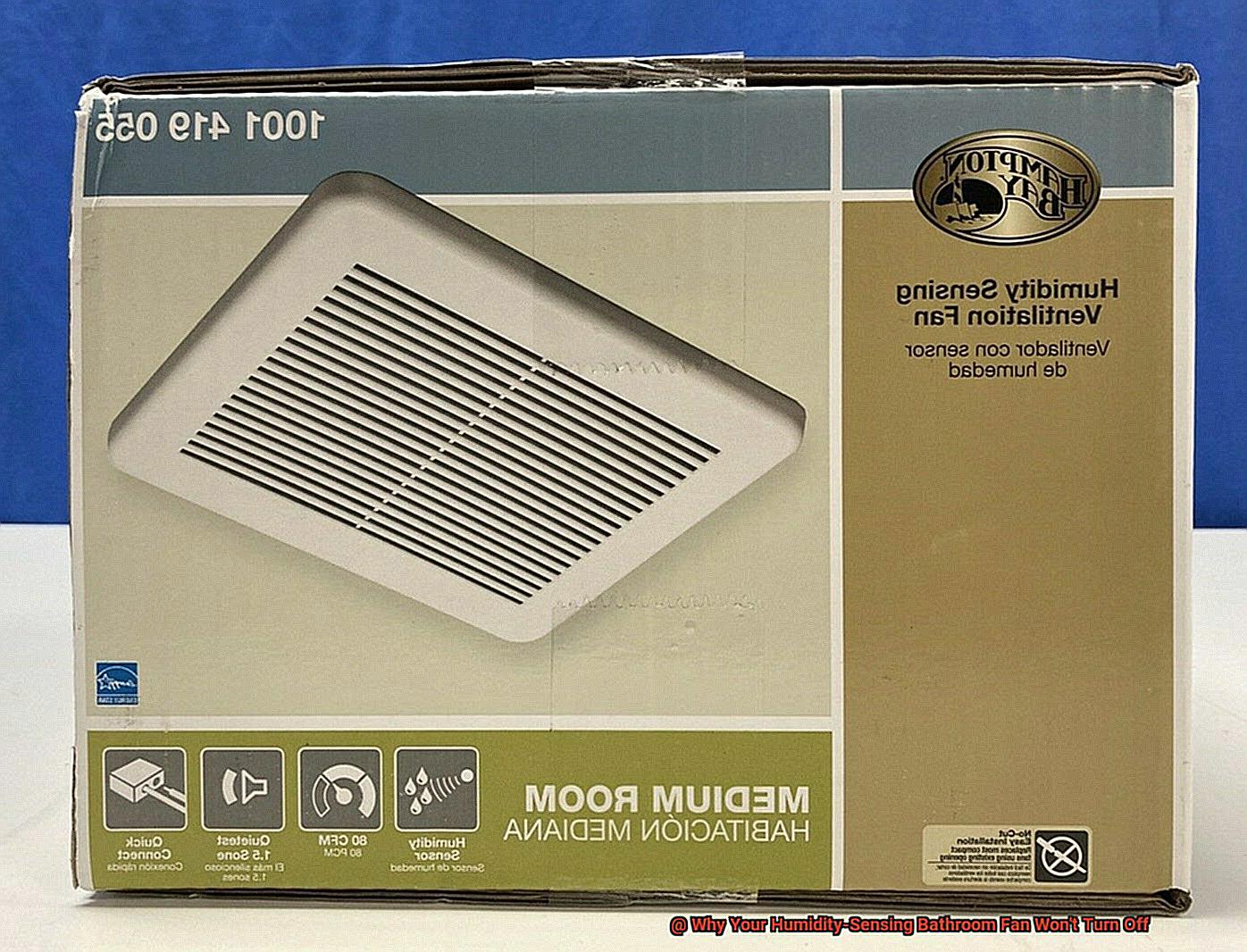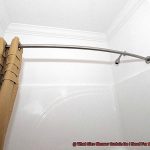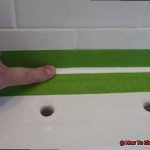Do you ever feel like your bathroom fan has a mind of its own?
You step out of the shower, expecting it to shut off soon after, but it just keeps going and going. If this sounds familiar, you may have a humidity-sensing fan that won’t turn off.
It can be frustrating, but fear not. This is a common issue that can be easily resolved with a few simple steps.
Humidity-sensing bathroom fans are designed to automatically turn on when the humidity in your bathroom reaches a certain level. It’s an excellent feature for preventing mold and mildew buildup, but it can become annoying when the fan won’t shut off even after you’ve left the room.
There are several reasons why this might be happening. It could be due to a faulty humidity sensor, malfunctioning motor, or even just a dirty fan that needs cleaning.
The good news is that identifying and fixing the problem is usually straightforward and can save you time and money in the long run. In this blog post, we’ll explore some of the most common causes of why your humidity-sensing bathroom fan won’t turn off and provide practical solutions to get your fan running efficiently again.
In this article, you’ll have all the knowledge you need to troubleshoot and fix the issue once and for all – leading to a more comfortable and enjoyable bathroom experience for everyone involved.
Contents
What is a Humidity-Sensing Bathroom Fan?
If you have ever experienced the unpleasantness of a steamy, humid bathroom, you know just how important proper ventilation can be.
Luckily, humidity-sensing bathroom fans are here to save the day. A humidity-sensing bathroom fan is like having a personal humidity detective in your home.
It can detect changes in the air and respond accordingly by turning on or off. It’s as if you have a friend who knows exactly when you need a breath of fresh air and opens the window for you without you having to ask.
That’s what a humidity-sensing bathroom fan does, except it does it automatically. These fans work by using a sensor to detect moisture levels in the air.
Once the humidity level rises above a certain threshold, the fan springs into action, extracting moisture from the air and preventing mold and mildew growth. You don’t have to worry about keeping track of the humidity level yourself, because the fan does all the work for you.
Not only are these fans great for keeping your bathroom dry and preventing mold, but they can also be helpful for individuals with respiratory issues. Excess moisture in the air can make it difficult to breathe, especially for those with asthma or allergies.
By removing excess moisture from the air, these fans help create a healthier living environment. However, like any technology, there can be issues that arise with humidity-sensing bathroom fans.
One common problem is when the fan won’t turn off, even when humidity levels have dropped back down to normal. This could be due to a faulty sensor, clogged vent, or improper installation/wiring.
Common Reasons Why Your Humidity-Sensing Bathroom Fan Won’t Turn Off
Picture this – you’ve just finished taking a relaxing, steamy shower and are ready to step out of your bathroom into the cool, dry air created by your humidity-sensing bathroom fan.
But what happens when your fan won’t turn off, leaving you feeling frustrated and annoyed? It’s like having an unreliable friend who won’t leave you alone even when you’ve had enough.
Here, we’ll explore the top three most common reasons why your humidity-sensing bathroom fan won’t turn off and what you can do about it.
A Malfunctioning Humidity Sensor
The first reason why your fan may not be turning off is due to a malfunctioning humidity sensor.
This sensor acts as the brain of your fan, constantly monitoring the moisture levels in the air. If it becomes dirty or damaged, it may malfunction and cause the fan to stay on even when the humidity levels have dropped below the set threshold.
It’s like having a clogged nose – you can’t function properly if you’re blocked.
A Faulty Switch
The second reason could be a faulty switch.
The switch controls when the fan turns on and off. If it’s not functioning correctly due to wear and tear over time or water damage, it may not be able to turn the fan off when it’s supposed to.
It’s like a light switch that won’t budge – frustrating and inconvenient.
Improper Installation
Finally, improper installation can also cause your bathroom fan to malfunction.
If it’s not installed correctly, it may not be able to function properly. For instance, if it’s not vented properly to the outside of your home, it may not be able to remove moisture from the air effectively.
This can cause the humidity sensor to think that there is still excess moisture in the air when there isn’t any. It’s like trying to drive a car without gas – it needs proper installation to function.

So, these are just a few of the most common reasons why your humidity-sensing bathroom fan may not turn off. It’s crucial to troubleshoot and identify the underlying cause so that you can take appropriate steps to resolve it.
Faulty Sensor
Here, we’ll be focusing on one of the most notorious culprits – a faulty sensor. Imagine this scenario – you step into your bathroom, turn on the shower and your trusty fan kicks into gear to whisk away the steam.
But when you step out of the shower and dry off, the fan is still going strong like a marathon runner. Now, that’s a frustrating situation.
But before you throw in the towel (pun intended), let’s explore why this might be happening. A faulty sensor is one of the most common reasons for a humidity-sensing bathroom fan that won’t turn off.
The sensor is responsible for detecting the humidity level in your bathroom and turning the fan on and off accordingly. If it’s not functioning correctly, it may not be able to accurately detect the humidity level, causing the fan to stay on longer than necessary.
So, what causes a sensor to malfunction? It could be due to a buildup of dirt or debris on the sensor over time that prevents it from functioning properly.
Just like how dust on your glasses can blur your vision, a dirty sensor can’t accurately detect humidity levels. To solve this issue, try cleaning the sensor with a soft cloth or brush to remove any buildup.
Another possible cause of a faulty sensor is wiring issues. Loose or damaged wires connecting the sensor to the fan can disrupt signals being sent and cause the fan to stay on longer than needed.
It’s like a game of broken telephone with mixed up messages. In this case, repairing or replacing the wiring could solve your problem.
If cleaning and repairing the wiring don’t work, it’s time to consider the possibility that the sensor itself is defective and needs to be replaced. Like an old car, sometimes things just wear out over time.
In this case, you should contact a professional electrician or HVAC technician to help you replace the faulty sensor.
Clogged or Dirty Vent
Well, the likely culprit could be a clogged or dirty vent.
Over time, dust, debris, and other particles can accumulate in your bathroom fan’s vent, obstructing the airflow and making it difficult for the fan to sense changes in humidity. This means your fan might continue to run even when it’s not needed.
But fear not. There’s a simple solution.
First, turn off the power to your bathroom fan at the circuit breaker. Then, take off the cover and inspect the vent for any blockages.
If you spot any buildup, use a soft brush or vacuum cleaner to carefully clean out the vent without damaging the fan’s blades or motor. Once you’ve cleared out the vent, reattach the cover and turn on the power to your bathroom fan.
Test it out by running water in your sink or shower and checking if the fan turns off after a few minutes once the humidity levels have dropped. It’s important to regularly clean your bathroom fan’s vent to prevent future clogs or dirt buildup.
This will ensure that it functions properly and turns off when it’s supposed to.
Improper Installation/Wiring
Improper installation and wiring of your bathroom fan can cause it to stay on constantly, wasting energy and driving up your utility bills. So, let’s get into the nitty-gritty of why improper installation or wiring can cause this problem.
During installation, if the wiring is done incorrectly or the switch is not wired properly, it can cause the fan to remain on. This could be due to a miscommunication in wiring or faulty wiring altogether.
It’s also possible that the installer simply didn’t have the expertise to properly install and wire a bathroom fan or switch. To avoid this issue altogether, it’s essential to have your bathroom fan installed by a professional electrician who has experience with this type of installation.
An expert electrician will ensure that all wiring is done correctly and that the switch is functioning properly before use. But what happens if you’ve already installed your bathroom fan and suspect that improper installation or wiring is causing it to malfunction?
Well, don’t wait until it’s too late. Ignoring this problem could lead to more than just wasted energy and higher bills.
Improper installation or wiring could pose a fire hazard if left unresolved for too long. In conclusion, proper installation and wiring are crucial factors in ensuring that your humidity-sensing bathroom fan functions properly.
CcrxtbRgVoI” >
Conclusion
To sum up, having a humidity-sensing bathroom fan is a smart choice for keeping your bathroom free from mold and mildew.
However, it can be frustrating when the fan refuses to turn off even after you have left the room. Fortunately, this is a common issue that can be easily fixed with some simple steps.
There are various reasons why your humidity-sensing bathroom fan may not turn off, such as a malfunctioning sensor, motor, or dirty vent. It’s important to troubleshoot and determine the root cause so that you can take the necessary actions to fix it.
Cleaning your bathroom fan’s vent regularly is crucial in preventing future clogs or dirt accumulation. Improper installation and wiring could also be the culprit behind this problem, which could pose a fire hazard if left unaddressed for too long.
Hence, it’s advisable to have a professional electrician install your bathroom fan who has experience with this type of installation. Remember that your bathroom fan acts as your personal humidity detective.






